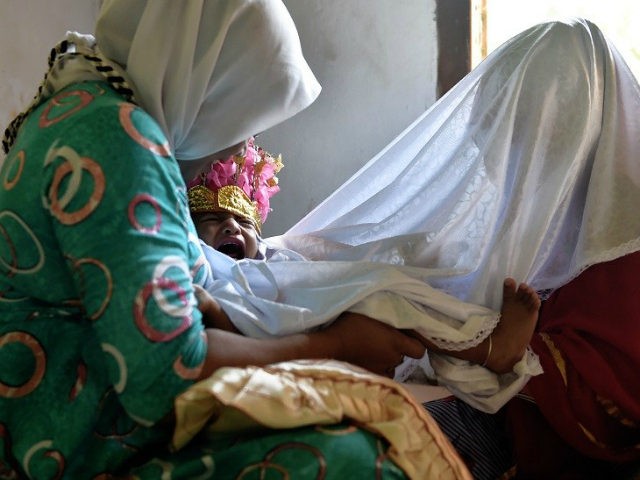A Nigerian man identifying himself as Alhaji Adebayo prompted outrage in Nigeria and beyond by posting graphic images of female genital mutilation on Facebook on January 3.
The outrage stemmed not only from the appalling images, but from the accompanying text supplied by Adebayo in which he advertised a “bonanza” of free circumcisions at his residence.
In a post the next day, he said he was visited by anti-FGM activists who made him “realize the disadvantages and implication in doing mutilations for the female child,” and urged parents to “put an end to the female circumcision.”
One of those activists later told CNN that Adebayo, who works in construction, was essentially trying to organize a charity that would provide female circumcision for low-income families. The procedure is technically illegal in Nigeria, but Adebayo said he was not aware of that fact.
As CNN goes on to explain, the nationwide ban imposed in 2015 has not been enforced with any prosecutions, and the area where Adebayo lives does not have a local ban. Local officials said they were aware of complaints about his Facebook post, but are not investigating Adebayo because no formal criminal complaints have been filed against him.
The UK Daily Mail notes that when a Facebook commenter highlighted the graphic nature of the images, Adebayo said he did not know the identity of the children depicted, and contemptuously accused his correspondent of trying to blackmail him.
He told another commenter that all of his own children have “passed through this method.” His responses to people who told him FGM is an archaic or illegal practice read like sarcastic dismissals. The entire Facebook post has since been removed.
Female genital mutilation remains a huge problem in Nigeria, in part because the 2015 nationwide prohibition is effectively toothless until more state governments choose to ratify it. Researchers say Nigeria has the highest number of FGM victims in the world. About one-quarter of the circumcised women in the world are Nigerian, and over 40 percent of the adult women in the country have been subjected to the procedure, although the rate seems to be declining among the younger generation of Nigerians.
Advocates believe FGM is necessary to control female sexual urges and make women more faithful to their husbands. The procedure is usually performed on very young girls; most victims in Nigeria are younger than five years old when they are mutilated.
Anti-FGM activists believe education is necessary to raise Nigerian awareness about the practice and persuade them to turn against it, especially in small rural communities. Female genital cutters actually have their own professional association in Nigeria, which has complained that banning the practice would ruin their livelihood.

COMMENTS
Please let us know if you're having issues with commenting.